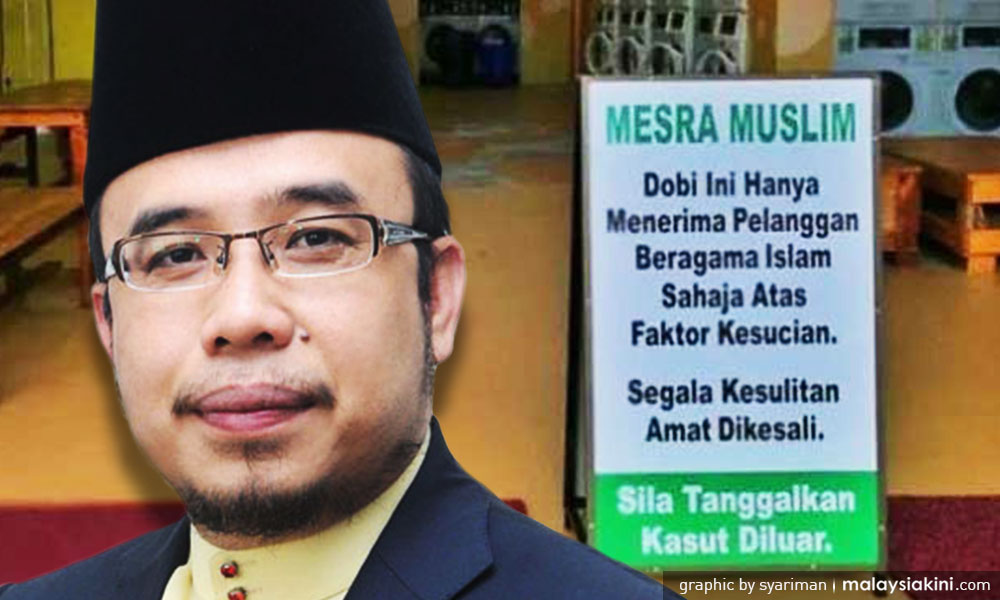
Perlis mufti Mohd Asri Zainul Abidin described the move by a laundromat in Muar, Johor to limit its services to Muslims only as “narrow-minded.”
Asri said the practice ran contrary to the teachings of Islam, which does not seek to burden the lives of its adherents, and which also enables them to live harmoniously in multicultural societies.
“Narrow-minded views like this will lead to extremism, and (cause one to) lose balance when living in a multiracial and multi-religious society.
“Islam is a living religion, and acts in balance with its surroundings. Fiqh (Islamic jurisprudence) is meant to make people’s lives easier, not cause hardship,” the Perlis mufti said when contacted by Malaysiakini.
Pictures of the Muar laundrette went viral last week, when it was reported that a sign on the premises reminded customers that only Muslims were allowed to use its laundry machines.
The operator declined to comment on why such conditions were imposed, but said he was only carrying out his obligations as a Muslim. He also declined to comment on whether it was due to “unclean” elements on the clothes on non-Muslim customers, such as dog fur.
Johor Islamic affairs advisor disagrees
Johor Islamic Council adviser Nooh Gadut said Muslims and non-Muslims must ensure that clothes washed in laundrette are free from “najis mughallazah” (impurities such as faecal matter from pigs and dogs).
“In Islam, najis (impurity) is different from dirt, as an item which is dirty can still be used for prayer after it is cleaned.
“That is why such clothes (that contain impurities) must be cleaned before being placed in a washing machine,” he was quoted as saying in Harian Metro.
His views were also supported by Johor mufti Mohd Tahrir Samsudin, who said the laundrette should not be viewed negatively by non-Muslims, seeing as Islam emphasises cleanliness.
The existence of such a laundrette, he said, is only meant to allay customers’ fears over any possible impurities on the clothes being washed there.
In contrast, Asri encouraged Muslims to choose fiqh, which he said offered a more simple and practical way to approach such issues.
“If the nature of an item is clean, if there are no impurities in the colour, smell or taste, then it is considered clean.
“Overthinking (issues such these) will cause a burden, and does not accord to the teachings of the Prophet Muhammad, which facilitates harmonious living among others.”
If others take the actions of the laundrette to its conclusion, he added, it will eventuate in division between Muslims and non-Muslims.
“I am worried that following this (incident), there will be those who argue that Muslims should not use money that has been used non-Muslims. This follows from the thinking that there is najis on the money when it changes hands.
“Then we will need to differentiate between cooking or dining utensils used by Muslims and non-Muslims in restaurants, just to assuage fears that something unclean, like pork, has touched it,” he said.- Mkini



No comments:
Post a Comment
Note: Only a member of this blog may post a comment.